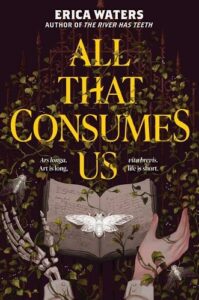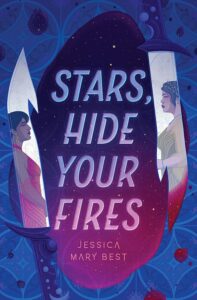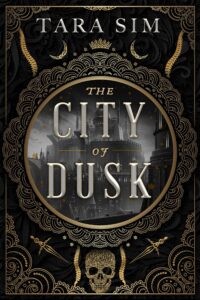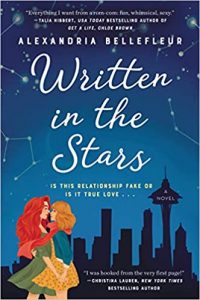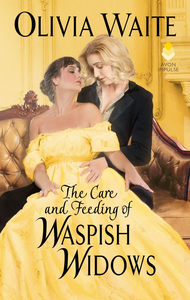Buy this from Bookshop.org to support local bookstores and the Lesbrary!
The days have started getting shorter as darkness takes up more and more space every day. The evening air isn’t quite cold enough to keep you inside, but every gust of wind chills to the bone, and the woods behind my apartment are filled with piles of dead foliage sprouting mushrooms. There’s just something about fall that keeps my attention set on horror all season long. It was in that spirit that I picked up All That Consumes Us in October, a book which bills itself as a “gothic dark academia novel.” That alone was enough to get me interested, but by the time I was done, Erica Waters’s latest work easily made the list of my favorite reads this whole year.
It’s safe to say Tara Boone is not having the best time with her freshman year at Corbin College. She longs to be a writer, but she’s stuck working two jobs to pay tuition and taking the education track so that she has even the slightest hope of having a career to pay her student loans with. When she gets a chance to enroll in Magna Viri—an elite, somewhat secretive honor society that only accepts a few students every year and promises free tuition, great jobs, and connections after graduation—she jumps at the chance, even if that chance comes as a direct result of the untimely death of one of Magna Viri’s freshman students.
Magna Viri isn’t quite the godsend it seems, however. Some of the older students seem sick, almost hollowed out, and even her fellow freshmen are beginning to show signs of wear. Tara at first chalks it up to how overbearing and aggressive the group’s advisor is, but it rapidly becomes clear that something far worse is going on as she begins writing in her sleep. She wakes up at her desk again and again with words that aren’t hers scrawled on paper in front of her, a story far darker and more violent than anything she’s ever written before.
Tara is one of the most painfully relatable characters I’ve read in a long time, from the overwhelming impostor syndrome to the constant comparing herself to the more elite students to the feeling like if only she wasn’t being held down by her lack of opportunity maybe, just maybe she could be as good as them. Tara’s every thought and feeling is achingly real because they’re so familiar, in a way that I think just about every working class creative has felt at some point or another.
The supporting cast is also incredibly diverse. Tara’s classmates come from a range of backgrounds and ethnicities. Most of them are queer, her roommate is nonbinary, and the romantic interest has a chronic illness. That diversity isn’t just for show, either; each character’s interaction with the secrets at the core of Magna Viri is fundamentally shaped by their identity. I found all of them to be as well-crafted and memorable as Tara herself. Even as the story becomes more and more supernatural, the characters keep it grounded in a way that makes every punch hit that much harder.
I’m going to put a spoiler warning for below the break here, as well as the content warnings for All That Consumes Us, because I can’t fully describe why I loved this book without revealing a big part of the mystery. If what I’ve said so far intrigues you, I strongly encourage you to go read this book, and then come back for the rest after.
Content warnings: gaslighting, loss of bodily autonomy, possession, underage drinking and alcoholism, emotional abuse and manipulation, and brief scenes including violence, transphobia and misgendering, and hospitals
(SPOILERS BELOW)
The best thing about horror, to me, has always been the metaphor. Good horror, to my mind, isn’t just about sending chills up your spine or giving you that adrenaline rush of fear, it’s about using the safety of fiction to explore the things that frighten us. That includes the obviously terrifying things, like the thought of having your body literally controlled by someone else, but it also includes the awful things that have become so ordinary that we ignore them entirely or even just accept them as part of life, using those obvious things to blow them up to the point where the inherent wrongness of them becomes apparent.
All That Consumes Us has plenty of the former, but it is packed to bursting with the latter. For those of you who read this far without reading the book first, signing up with Magna Viri is signing up to be possessed by the ghost of a former member, someone who’s genius they considered so great that it could not be allowed to disappear just because they died. You create that person’s work for your four years at college, and in exchange you get to put your name on it. It started out with the best of intentions, as a partnership, but overtime became corrupted, and now the students of Magna Viri are being drained utterly dry for the sake of their ghosts.
The ghosts of Magna Viri work incredibly well as a scathing metaphor for so much of what plagues academic and creative work. They are the toxic productivity that demands that we expend ourselves physically or else be considered worthless. They are the commoditization of creation and the treatment of creators as tools that enrich the elite. They are the idea that there are only a few truly great works and everything else is simply derivative. They are the colonization of young, diverse minds, forcing them to focus on mainly the works of dead white men in order to be considered educated, and to mimic them in order to be considered skilled.
All That Consumes Us forces you to reckon with the cruel realities of academia and creation that we all too often take for granted, and it does so in a package that is diverse, suspenseful, compelling, and deeply unsettling. Currently, it’s sitting at the top of my list this year, and I think it’s going to be difficult to dethrone. I cannot recommend it highly enough.

